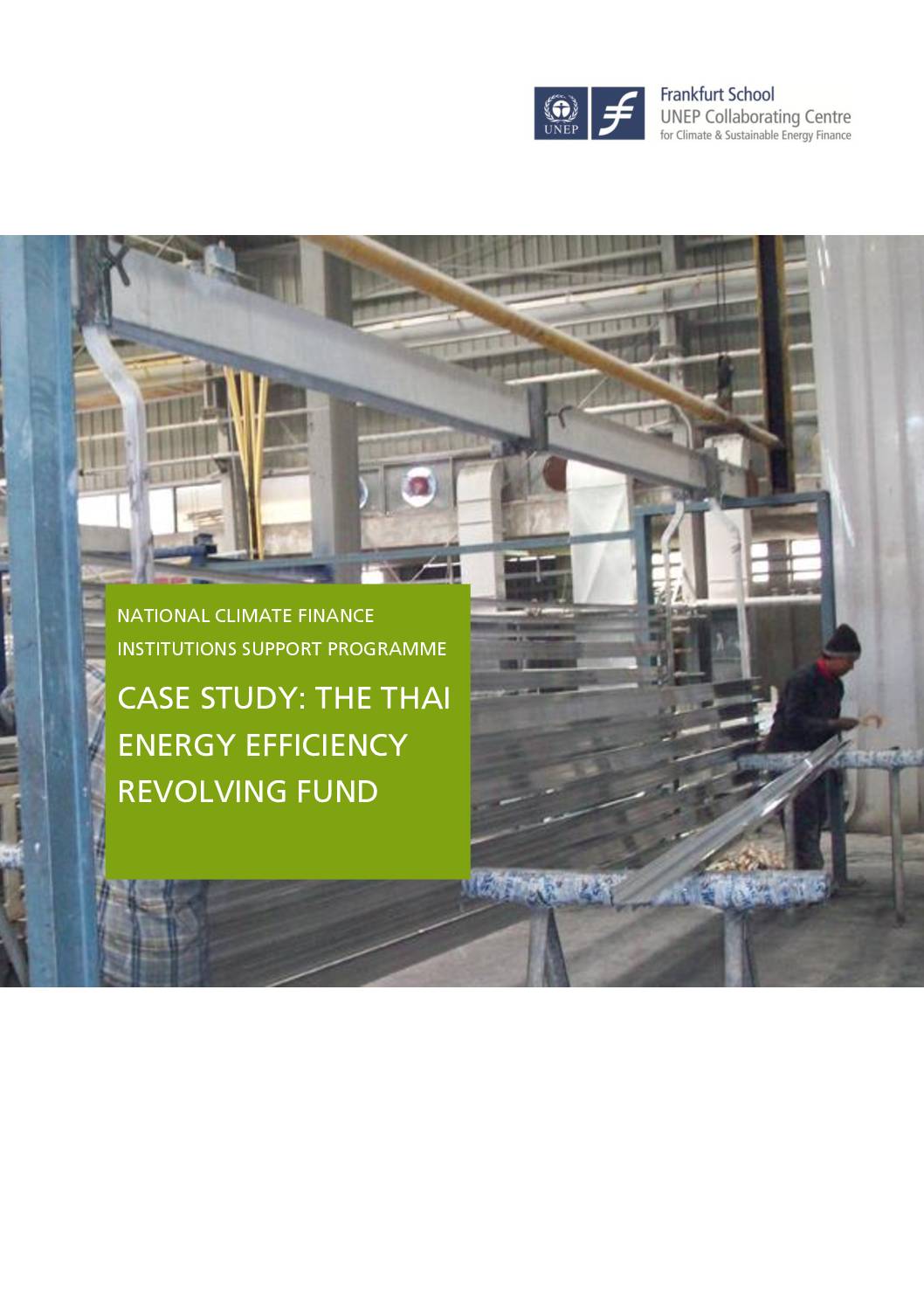In 2003 the Government of Thailand launched the Thai Energy Efficiency Revolving Fund (EERF) as part of its Energy Conservation Programme. The EERF works to overcome barriers within the Thai financial sector to stimulate adequate financing for energy efficiency and reduce the country’s greenhouse gas emissions.
This case study offers a sufficient background to the development of the EERF and provides an overview of the macroeconomic situation and the evolution of climate change policies in Thailand. It focuses on the EERF, its funding sources, design, administration, and impacts, including project examples and energy savings.
The Centre’s EERF case study is now available in French, Spanish, and English.
Share this

Sectors: Buildings, Cross cutting, Finance, Industry, Renewables
Country / Region: Asia, Thailand
Tags: building sectors, energy, energy efficiency, energy savings, greenhouse gas emissions, industry, revolving funds, specific financing mechanismsIn 1 user collection: Building Efficiency Accelerator: Finance Resource Collection
Knowledge Object: Publication / Report
Published by: Frankfurt School - UNEP Collaborating Centre for Climate & Sustainable Energy Finance
Publishing year: 2012
Author: Christine Grüning, Carola Menzel, Tobias Panofen, and Laura Susanne Shuford
